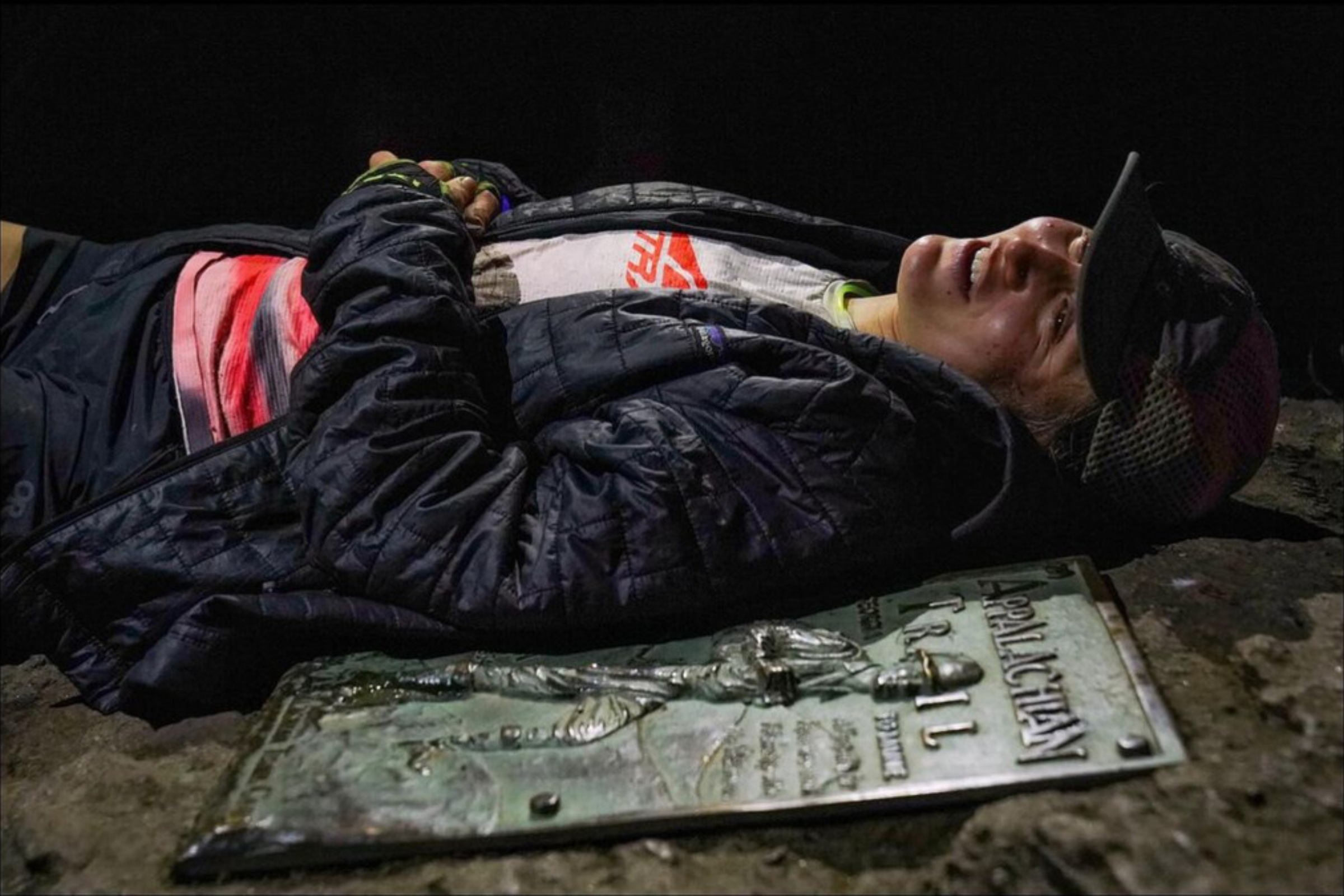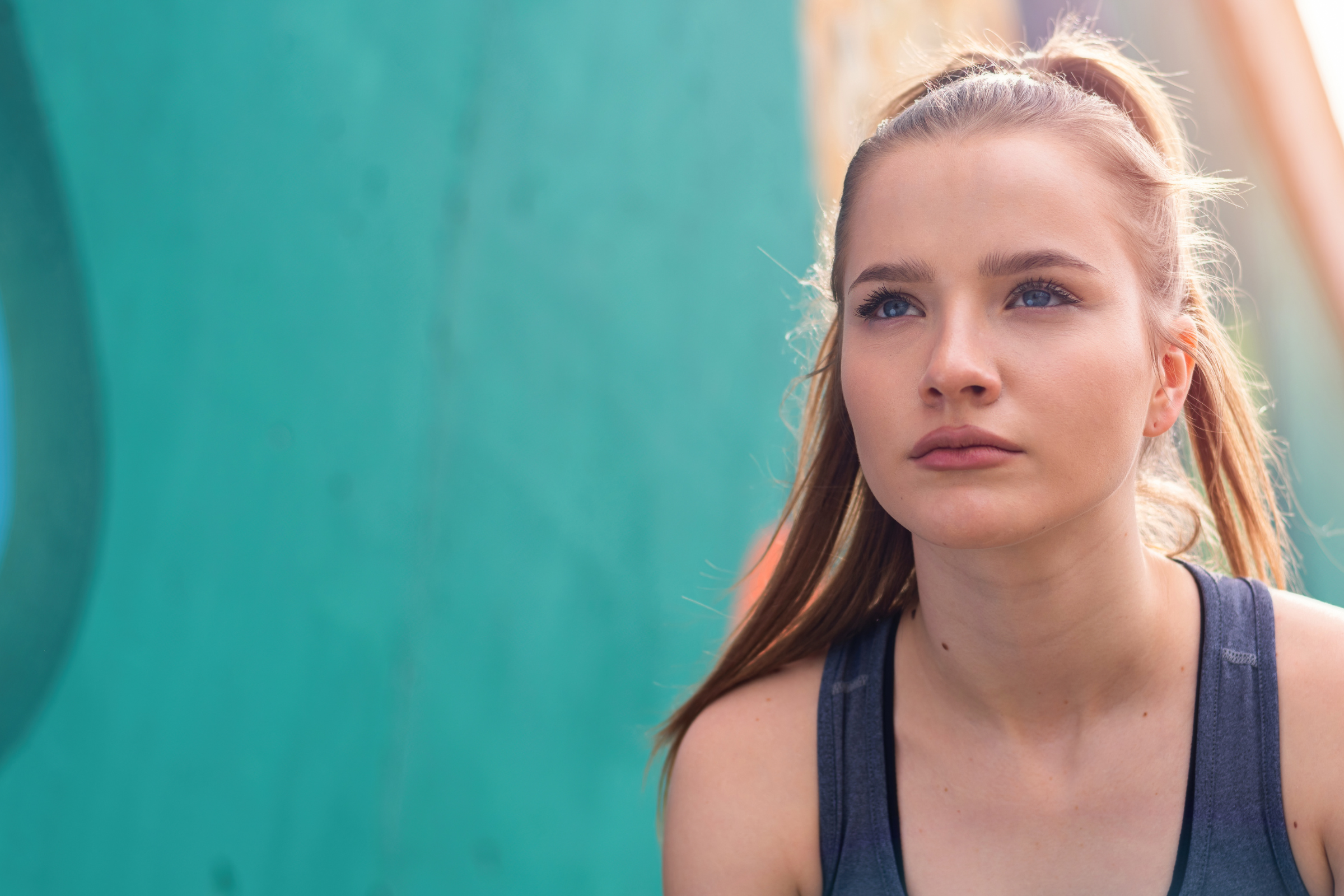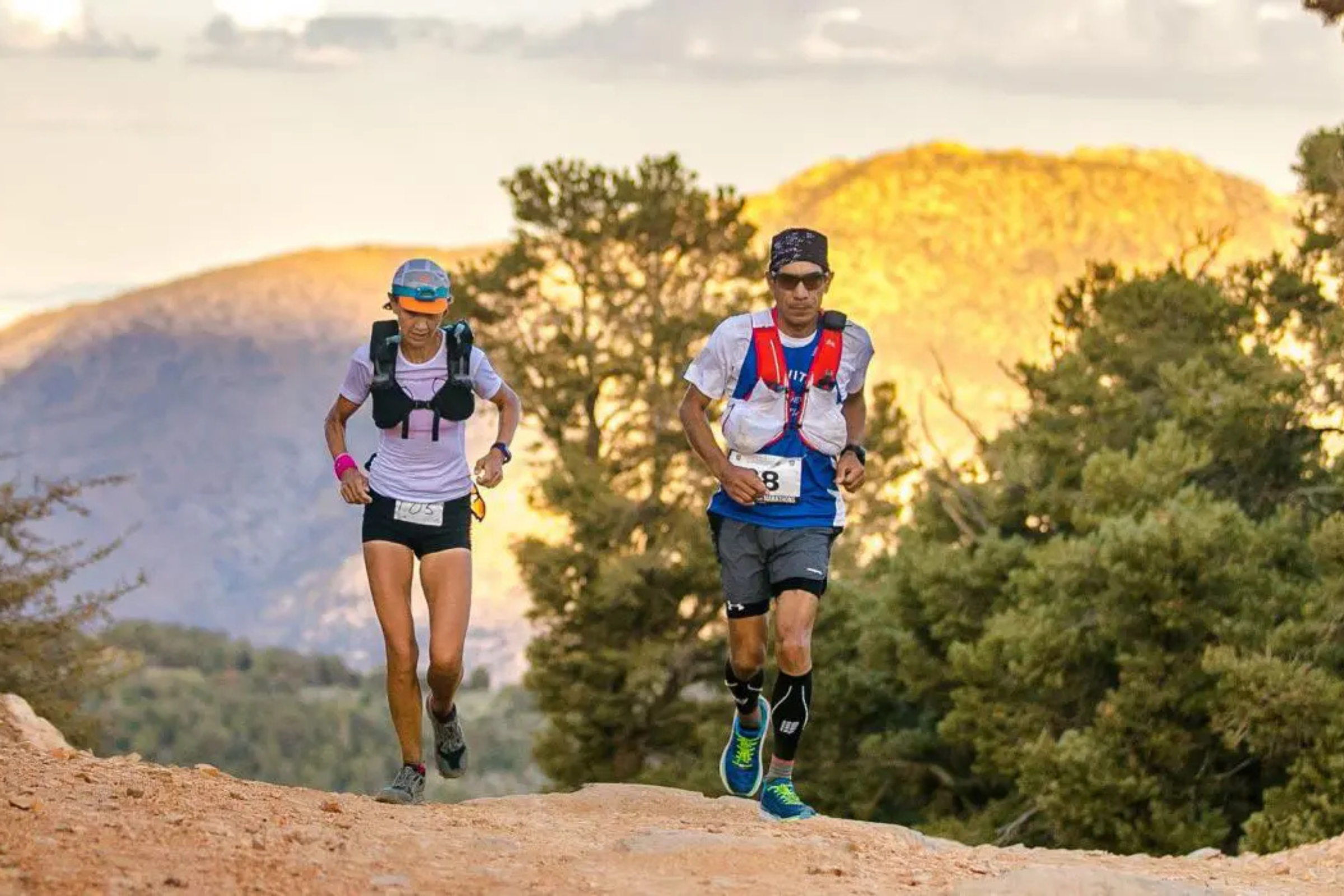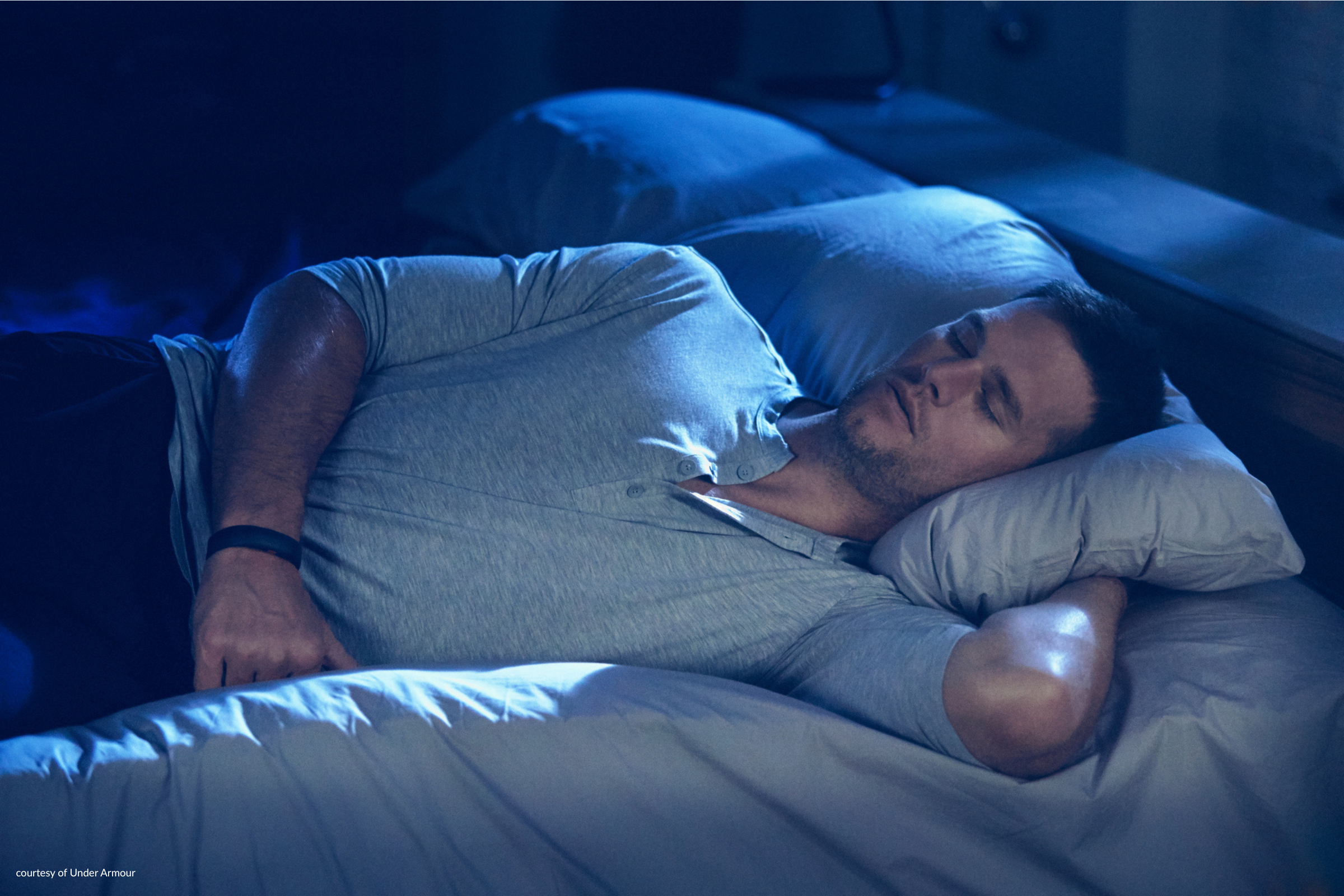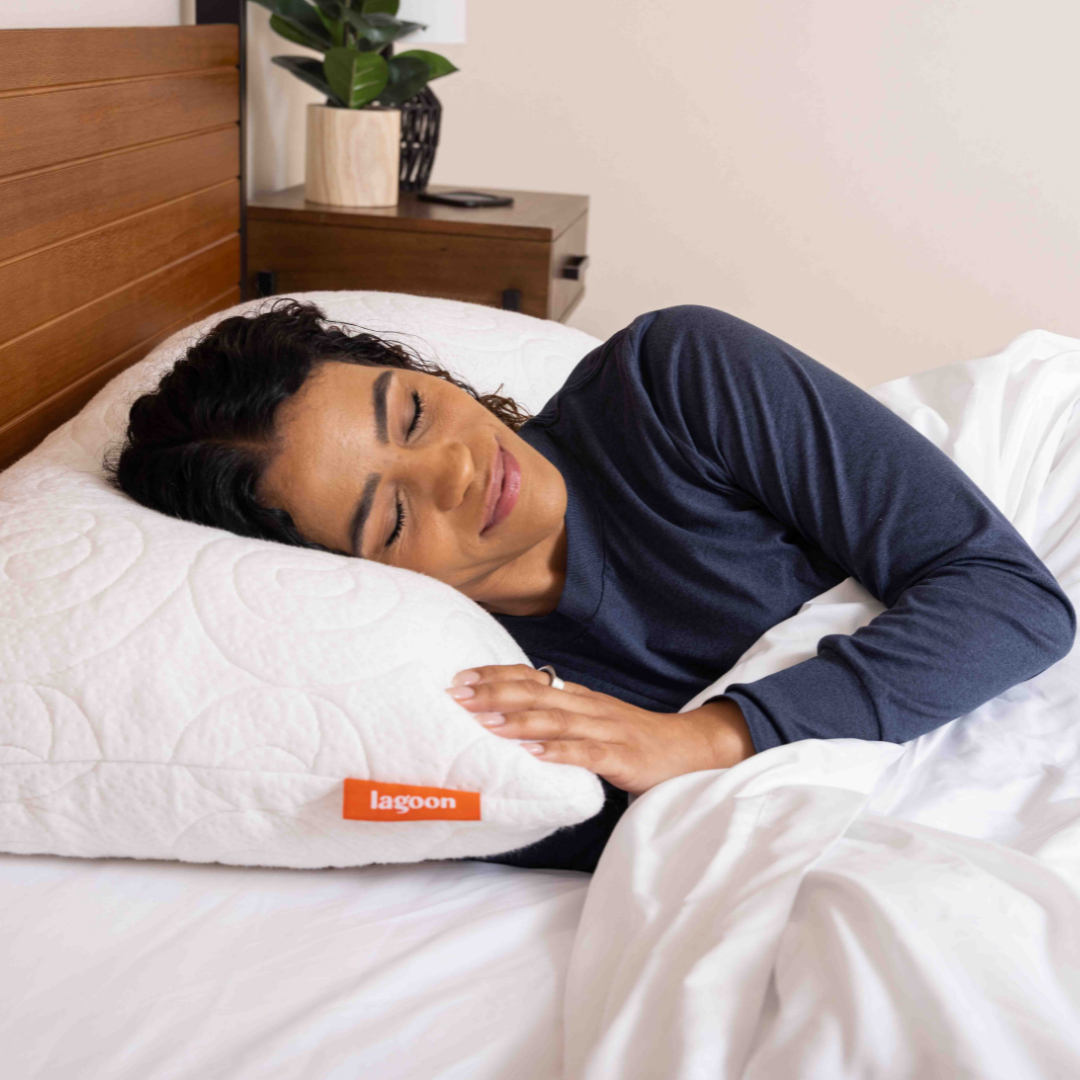Hey packlings 👋
How little did Tara Dower sleep while averaging 56+ miles a day on her record-breaking Appalachian Trail run? What’s the science behind why good sleep is great for your heart health? There’s plenty of juicy news in this week’s edition of Sleep & Fitness - let’s get into it!
⛰️ How Tara Dower Broke the Speed Record on the Appalachian Trail - Very Little Sleep
Tara Dower made history by setting a new fastest known time (FKT) for the Appalachian Trail, completing the 2,190-mile trek in 40 days, 18 hours, and 6 minutes. During her grueling journey, Dower averaged an astonishing 56.4 miles daily, overcoming significant physical and emotional challenges, including sleep deprivation and the rugged terrain of Maine and New Hampshire. Supported by a dedicated crew of around 50 people, she pushed through moments of despair, notably crying during her final miles but ultimately persevering. Given how far she pushed her body past the brink, while regularly sleeping five hours or less per night, it’s truly amazing that she was able to persevere. Dower’s achievement surpassed the previous FKT held by Karel Sabbe by 13 hours and served as an inspiring fundraising effort for Girls on the Run, raising over $39,000. Celebrating her victory, Dower emphasized the importance of inspiring women and girls to tackle ambitious goals, highlighting the potential of endurance in female athletes.
🧬 The Science Behind Why Sleep is Good for Your Heart
As we age, getting quality sleep can become increasingly challenging, yet it's crucial for heart health. Aiming for seven to nine hours of restful sleep each night is linked to numerous health benefits, including a reduced risk of heart disease. Studies show that poor sleep can increase inflammation and lead to conditions like high cholesterol and diabetes, which in turn heighten the risk of heart attacks and strokes. This is exacerbated by the fact that older adults often face pronounced sleep challenges from insomnia, effects of medications, chronic pain or sleep apnea. These factors can disrupt sleep quality and in turn potentially increase the risk of heart health challenges. To combat this, work on improving sleep hygiene by establishing a calming bedtime routine, avoiding screens before sleep, limiting caffeine and alcohol intake, and maintaining a comfortable sleep environment.
😎 Is Sleep “Cool” Now?
As we settle into the return of Standard Time and the promise of an extra hour of sleep, it's a great time to reflect on how we approach our rest. Dr. Jennifer Kanaan from UConn Health’s Sleep Disorders Center is excited to see that sleep has finally become "cool" — with trends like the "sleepy girl mocktail" and "chronoworking" sparking interest in better sleep. While these fun trends can sometimes help create calming routines, Kanaan points out that they’re not always backed by science. For example, the “sleepy girl mocktail” (a mix of magnesium powder, tart cherry juice, and sparkling water) may not greatly impact sleep quality, but it can help set the tone for a relaxing bedtime ritual. Kanaan stresses that the real sleep hacks are the ones that focus on creating the right environment: a cool, quiet bedroom, limiting screen time before bed, and sticking to a routine. The good news? People are finally taking sleep seriously. As Kanaan puts it, sleep is a "no-cost, no-side-effect tool" for better health, performance, and overall well-being. So as we embrace the extra sleep from the time change, let’s think about how we can make the most of it — with good habits that work.
🛌 Humans Evolved to Share Beds: How Your Sleep Companion Affects You Now
Should a bed be shared or slept in alone? Well it’s actually quite a loaded question. Starting from birth, some Western societies expect to sleep alone, while co-sleeping is common in various cultures, especially between caregivers and infants, with rates reaching 60-100% in parts of South America, Asia, and Africa. It’s a highly debated topic. Some say co-sleeping has evolutionary benefits for warmth and safety, while others encourage self-soothing for infants. As we grow, co-sleeping continues with a 2010 UK survey showing 6% of children bed sharing up to age four. Meanwhile, siblings often share beds too, with studies indicating that while bed sharing may lead to shorter sleep durations, it doesn’t necessarily cause greater sleep disruption. Then among adults, bed sharing with partners is common and can enhance feelings of intimacy and perceived sleep quality, though it might disrupt sleep for some, particularly women (in large part because their partners are snoring). Overall, the impacts of co-sleeping vary widely, and decisions should consider individual health, age, and circumstances rather than prevailing cultural norms.
⌚️ Garmin Sleep Coach Helped Me Beat My Goal Time in My First Marathon
Owen Poole, a certified sleep science coach, recently shared his experience with marathon training and how he managed his sleep with his Garmin sleep coach. After a casual history of running, he committed to completing his first marathon, and quickly recognized the need for consistent training and recovery. He found that good sleep led to better training sessions, while poor sleep negatively impacted his performance. His Garmin watch's Sleep Coach feature provided tailored recommendations for sleep duration based on his training load. Owen also made lifestyle adjustments, such as reducing alcohol intake and creating a calming bedtime routine, which improved his sleep scores. On race day, despite not getting a full night's sleep, which is common for many people before “race day”, Owen successfully finished the San Francisco Marathon in 3:58:24. His experience underscores the importance of prioritizing sleep for optimal training and recovery, and shows that for some, sleep trackers can be a really helpful tool while training.
That’s a wrap on this week’s sleep and fitness news. Remember to follow @lagoonsleep on Instagram for your daily dose of sleep & fitness news and entertainment.



